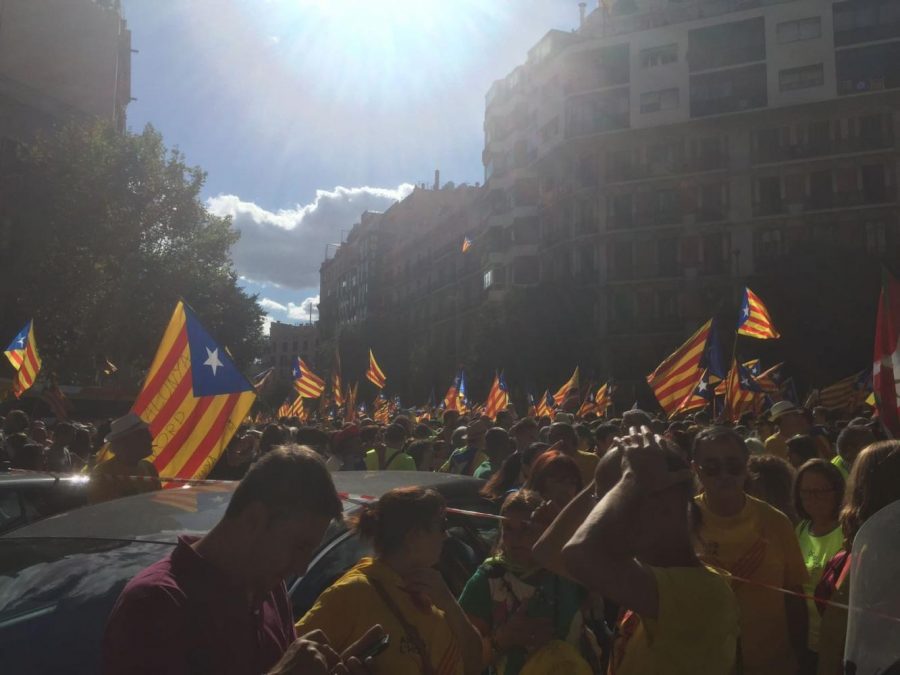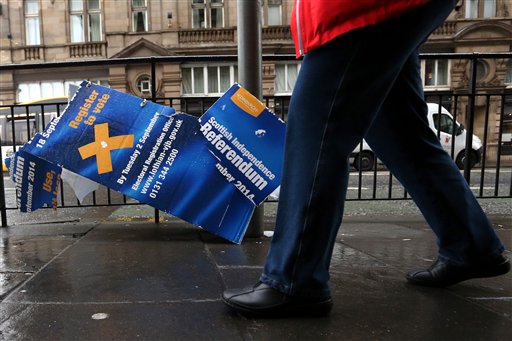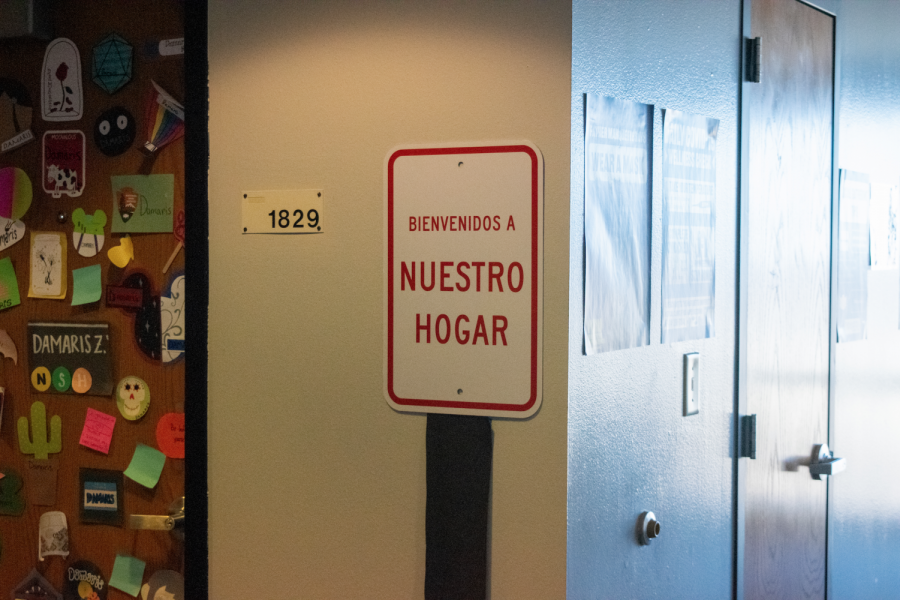Julia Uriach Dasca woke up last Sunday to scenes of violence in her home region of Catalonia, Spain, spurred by the region’s attempted referendum to declare independence from its country. Uriach Dasca is a foreign exchange student in the College of Health Sciences. An ocean away, she could only sit and watch the events unfold.
Millions of Catalonians participated in what Spain declared an illegal referendum. Catalonian officials reported 90 percent of the 2.26 million votes were for independence. The total voter turnout was 42.3 percent, according to Associated Press. However, because the referendum was illegal, the Catalonian government’s statistics may not be completely accurate.
“You feel powerless because you see that everyone is engaging in activities to express their political views,” Uriach Dasca said. “It’s like you’re seeing everything from a screen, because there’s nothing you can do.”
Videos published by world news outlets show Spanish police beating citizens, firing rubber bullets and confiscating ballot boxes. Up to 900 people were reportedly injured in the clashes.
Uriach Dasca said she remembers waking up the day it happened and hearing news about people being hurt and others fighting.
“On the one hand you feel humiliation, you feel hate. You feel sorry and you feel like crying. But on the other hand, you also feel proud,” Uriach Dasca said. “You feel happy that those people are standing up for what they believe.”
Eugenia Afinoguenova, a Spanish professor, said this referendum is not the first time Catalonia has pushed for independence.
“They had a referendum in 2014 about starting a process of independence. Again, this was an illegal referendum and the majority was in favor of beginning the process,” Afinoguenova said.
The difference between this year’s referendum and 2014’s is police involvement. While Spain’s central government did not react significantly in 2014, this year, police forces from other areas of Spain tried to prematurely prevent the referendum, leading to violence that sparked protests throughout the country.
“The votes were illegal,” Uriach Dasca said. “The violence used for that was also illegal. Voting might go against the rules of Spain, but violence goes against human rights.”
She said there is no way to justify violence against children and the elderly.
Ignacio Rivero Covelo, an assistant professor in the department of biological sciences, is from Spain’s northwestern region of Galicia. He said the problem lies in Spain’s central government pushing for nationalism in a country that is made up of several culturally and historically distinct regions.
“When Catalonia and the Basque Country tried to expand their identity through legal means, they were prevented from doing so. What we are seeing is a constant reaction to the opposition that the central Spanish government has to viewing Spain as a multicultural, multinational entity,” Rivero Covelo said.
Another driving force behind the independence movement is financial disagreement, according to Afinoguenova.
“Unlike with the U.S. or Germany, Spain’s central government collects all taxes and redistributes them,” Afinoguenova said. “Representing one of the best economically developed regions of Spain, Catalonian pro-independence leaders are against what they deem to be disproportionate redistribution.”
At the same time, the economic consequences of independence are negative. Many major companies in Catalonia stated they will move if Catalonia were to declare independence, and the European Union stated Catalonia would automatically be rejected and have to reapply.
“Everyone knows that independence would very negatively affect Catalonia, but everyone does it by feelings. It’s people who do not feel Spanish at all,” Uriach Dasca said. “The fact of what your heart feels, that’s way more powerful than anything else.”
Catalan President Carles Puigdemont stated Catalonia would declare independence 48 hours after the results came in, and that period has passed without an update. The Spanish prime minister warned if Catalonia declares independence, the central government will do everything possible to preserve unity. Puigdemont is set to deliver a speech to the Catalonian parliament Tuesday evening.










